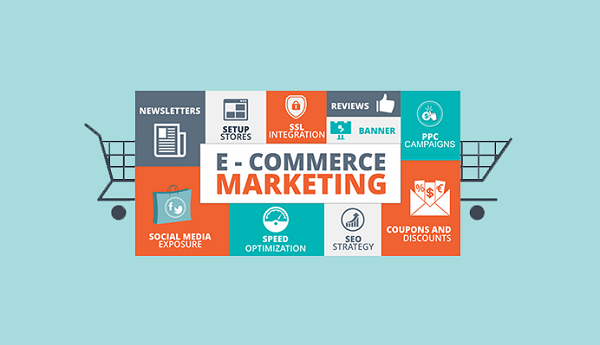
Ecommerce marketing is the process of increasing website traffic, brand visibility, and sales. It makes use of inbound advertising, organic SEO, and other marketing tactics. This includes generating awareness through social media, search engines, email, and digital assets. Likewise, converting website visitors into customers through conversion rate optimization.
Therefore, to convert visitors to customers, ecommerce marketing employs a variety of digital marketing strategies. Ecommerce marketing necessitates an omnichannel strategy, with some channels outperforming others.
1. Search Engine Optimization (SEO)
SEO is a long-term strategy for increasing traffic to your ecommerce site. This is by increasing your organic, or unpaid, search engine rankings.
This includes optimizing your technical SEO and content strategy for ecommerce sites. Technical SEO encompasses on-site optimization techniques such as mobile optimization, URL structure, keyword tags, internal linking, and site speed.
Along with technical SEO, quality content is critical for organic ecommerce traffic generation. On product and category pages, you should have high-quality content, as well as a regularly updated, SEO-optimized blog.
2. Pay Per Click (PPC) Advertising
Pay per click (PPC) advertising entails paying for search engine placement through tools such as Google AdMobs and Bing Ads.
Managing an effective PPC campaign entails bidding on relevant search terms for your business. It therefore, increase your traffic and sales. These ads appear above and below the organic search results on search engines. And it is an excellent way to increase site traffic quickly.
3. Email Marketing
Email marketing software is one of the most effective methods of engaging potential customers and up-selling to existing customers.
There are numerous strategies available for ecommerce email marketing. You can use automated emails to remind users that they have an item in their cart.
Along with automated emails, marketing emails and newsletters can inform subscribers about upcoming promotions, new products, and special offers.
4. Affiliate Marketing
Affiliate marketing is the process of connecting with other websites to promote your products through the use of an affiliate network.
These other website owners, referred to as affiliates, promote your product using text links and banners, and an ecommerce retailer compensates them with a percentage of the sale price when a purchase is made.
Affiliate marketing is a highly scalable, revenue-generating form of performance marketing, as ecommerce advertisers set their own commission rates and are guaranteed a certain return on investment.
5. Social Media Marketing
Everybody is on Facebook, Instagram, and Twitter these days, and so should your ecommerce brand.
By leveraging social media marketing, you can grow your following, engage with existing customers, manage your reputation, and target users with ads tailored to their interests.
Organic social media marketing entails posting and updating your brand’s social media pages in order for users to connect with you via their news feeds.
Paid social media marketing entails creating custom image or video advertisements and paying for their promotion to a targeted audience based on their interests, demographics, and shopping behavior. It is a customer-centric approach to ecommerce marketing that is centered on delivering an exceptional customer experience.
To maximize the impact of your online business, organic and paid social media tools should be used in tandem. It’s an excellent way to boost brand awareness and highlight your brand’s personality.
6. Influencer Marketing
When it comes to making online purchases, users are extremely reliant on the opinions of others to help them make their selections.
They rely on online reviews and peer and influencer recommendations to determine what to buy and which brands to interact with.
By becoming a member of an influencer marketing network, you can connect with micro-influencers in your niche who will help you promote your business.
Typically, an ecommerce store will pay an influencer a one-time fee (more followers = higher fee) in exchange for them promoting their products on their blogs, Instagram accounts, Facebook pages, or YouTube channels.
